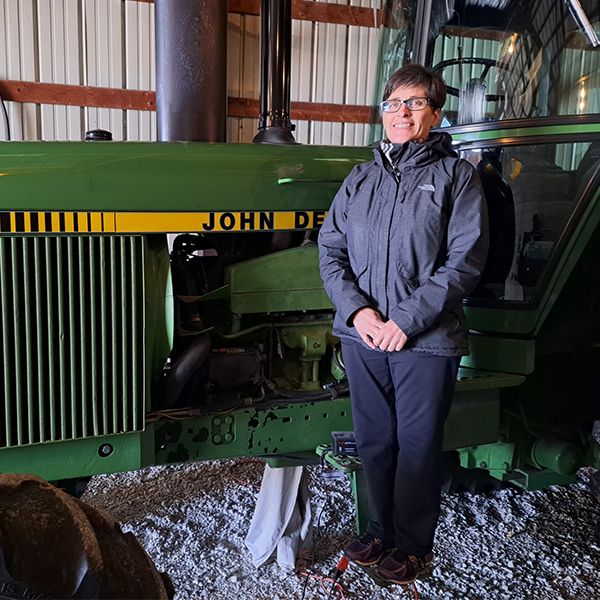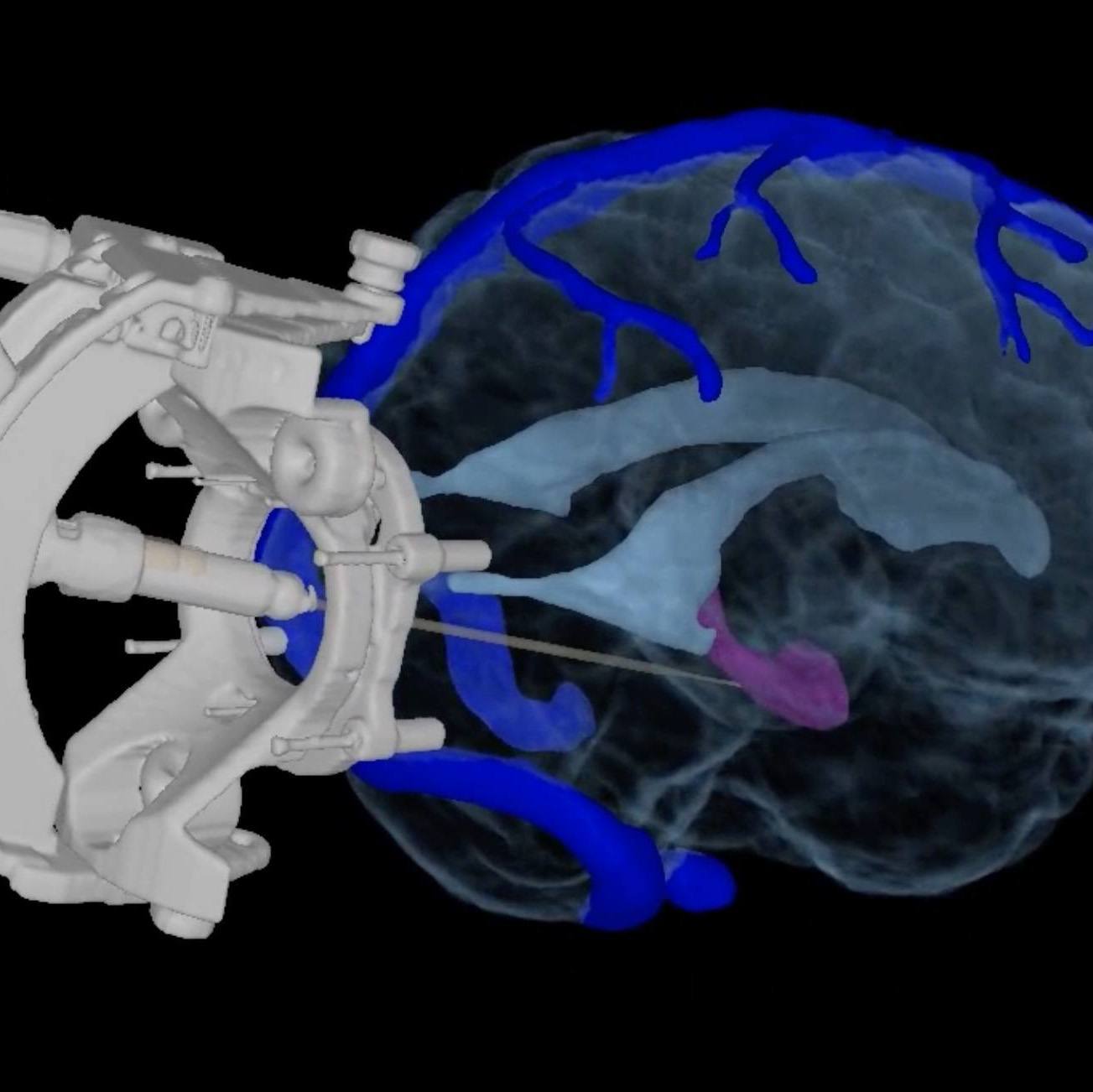-
Meet Gustavo Cortes Puentes, M.D. — Compassionate Clinician Scientist
Gustavo Cortes Puentes, M.D. (@DrivingPressure), is a pulmonary and critical care specialist at Mayo Clinic in Rochester, Minnesota. Originally from Colombia, he came to Mayo by way of an internal medical residency with the University of Minnesota Medical School in Minneapolis, following a research scholar appointment during which he studied pulmonary mechanics and acute respiratory distress syndrome, or ARDS.
Dr. Cortes Puentes didn't stop pursuing new knowledge when he obtained a full-time staff position at Mayo Clinic, rather, he has continued to seek out opportunities to learn and to teach, to provide leadership and to advance his own and others' ability to provide the best possible care for patients.
In 2022, Dr. Cortes Puentes commenced a multi-year mentored research and training program sponsored by the Mayo Clinic Robert D. and Patricia E. Kern Center for the Science of Health Care Delivery.
His research focus within this program is two-fold:
- Studying changes in pulmonary function in gender-affirming therapy.
- Finding personalized approaches to pulmonary function testing in transgender and gender diverse patients.
Below is an interview with Dr. Cortes Puentes, marking entry into the Kern Health Care Delivery Scholars Program:
What moment or experience in your life influenced your decision to be a clinician?
My decision to become a doctor, and more specifically a clinician, was driven largely by values instilled in me by my family. I embraced the idea of being a part of a profession focused on helping others, regardless of circumstance or socioeconomic background; one that focused on healing and improving quality of life. As early as elementary school, I developed a love for math and science. I somehow knew very early on that medicine was the career for me, and I hoped to help people by applying science.
What motivated you to become a Kern Health Care Delivery Scholar?
Developing research that meaningfully affects patient care and addresses health care disparities is an academic and medical practice priority for me. Consequently, the Kern Health Care Delivery Scholars Program enables me to access the structured and intense mentorship necessary for success in this field. I pursued this opportunity because I believe in the importance not only of engaging in research to improve scientific understanding but also of conducting research that meaningfully affects patient care and addresses health care disparities.
What is your focus and goal as a scholar within the Mayo Clinic Kern Center for the Science of Health Care Delivery?
My team's study is titled "Evaluating the Impact of Gender-Affirming Treatments on Pulmonary Function in Transgender and Gender-Diverse Patients." Our research initiative aims to understand the changes in pulmonary function that occur as gender-affirming therapies are established. We're also working to determine a personalized approach to interpret pulmonary function tests using gender-appropriate normative values in patients who are transgender or gender diverse.
Tell us about your mentoring team.
I am fortunate to have a multidisciplinary mentorship team of clinicians and research scientists:
- Cassie C. Kennedy, M.D., is the clinical director of the Kern Health Care Delivery Scholars Program. She is a pulmonologist and intensivist with expertise in lung transplantation and health disparities research.
- Kaiser G. Lim, M.D., is a pulmonologist and intensivist and co-medical director of Mayo Clinic's Pulmonary Function Testing Laboratory. He is an exceptional content area and logistical mentor for my project.
- Caroline J. Davidge-Pitts, M.B., B.Ch., is an endocrinologist and the medical director of Mayo Clinic's Transgender and Intersex Specialty Care Clinic. She serves as a content area expert and logistical mentor.
- Cesar A. Gonzalez, Ph.D., L.P., is a clinical psychologist and the clinical director and behavioral health director of the Transgender and Intersex Specialty Care Clinic. Dr. Gonzalez provides expertise and mentorship in conducting semistructured interviews and assists with developing recruitment tools and educational materials for those interviews.
- Sean Phelan, Ph.D., is a research scientist and the section head of Social and Behavioral Sciences in the Mayo Clinic Kern Center for the Science of Health Care Delivery's Diversity Science Program. Dr. Phelan provides expertise and mentorship on research into health disparities in health and health care delivery.
- Sophia M. Pillai, M.D., is a pediatric pulmonologist. As the pediatric pulmonary lead on this project, she provides expertise in patient education and recruitment.
- Ajay Jayakumar, M.S., is a manager of data and analytics in the Mayo Clinic Kern Center for the Science of Health Care Delivery. His expertise is instrumental to our proposal implementation process, including fully developing the results and incorporating appropriate clinical alerts within the electronic medical record.
How will your research transform or improve patient care, or affect public health?
My team's project involves the LGBTQ community, members of which are at a greater risk of discrimination and disparities in both health and health care. Specifically, we hope to reduce or eliminate disparities in pulmonary function testing and subsequent treatment of respiratory diseases in transgender and intersex patients.
With the introduction of puberty blockers, gender transition may begin before a person has a fully grown and developed adult body. Changes occur in body composition and muscle strength as a result of puberty blockers and gender-affirming hormone therapies. If clinicians use the patient's sex as assigned at birth, instead of the patient's gender, to calculate predicted lung function, transgender and intersex patients can be at risk of misdiagnosis and inappropriate treatment. These gender disparities are likely to be present in almost all scenarios where clinicians use pulmonary function tests to guide diagnosis and allocate treatments.
Our study seeks to identify and revise inappropriate clinical processes that could be systematically and adversely affecting transgender patients. This groundbreaking work has the potential to dramatically improve health care delivery for a group that experiences disparities across the spectrum of care and outcomes.
Why did you choose Mayo Clinic to pursue your career?
Respiratory physiology has become my passion over the years and is a subject that defines me professionally and academically. Mayo Clinic has given me the opportunity to express this passion through its integrated education, research and patient care activities. Moreover, choosing Mayo Clinic to pursue my career has allowed me to combine my knowledge and experience in respiratory physiology with a unique opportunity to advocate for Mayo Clinic to become a more equitable and inclusive organization for both patients and staff.
Tell us three words that describe you.
Perseverant, motivated and creative.
Outside of work, what is one thing you like to do?
I am passionate about traveling — there are countless reasons why, but perhaps the most important is the people I meet.
###
Related resources:
- Center for Health Equity and Community Engagement Research
- Pulmonary and Critical Care Medicine Research
Related Articles








